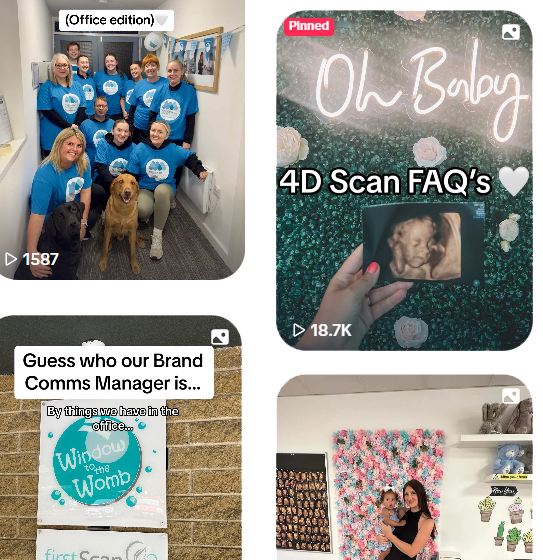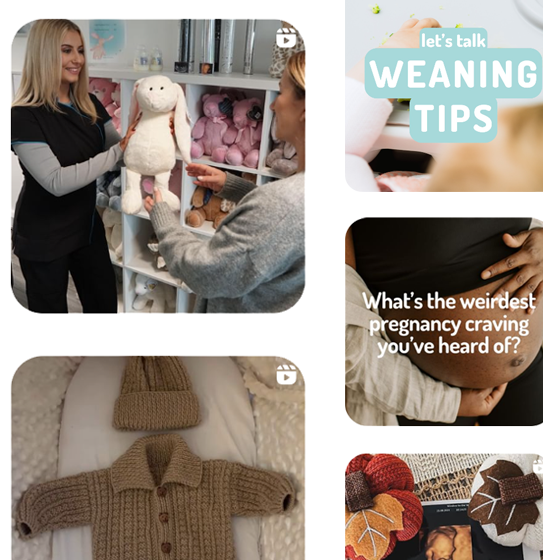Motherhood is often described as one of life’s most beautiful experiences — but behind the soft-focus pictures and joyful announcements, the reality can be far more complex. From pregnancy through to the months (and even years) after birth, many women experience a range of emotions, including fear, anxiety, loneliness, and sadness. For some, these feelings become overwhelming and interfere with daily life — a sign that support might be needed.
If you’re reading this and recognising those signs in yourself or someone you love, please know this: you are not alone, and you are not failing. Maternal mental health challenges are common, treatable, and nothing to be ashamed of.
In the UK, there is a growing network of support to help mothers — and families — navigate the mental health challenges that can arise during the perinatal period. Here’s a guide to the options available to you.
Speak to Your GP or Health Visitor
One of the most immediate and accessible sources of support is your GP. Whether you’re struggling with postnatal depression, anxiety, or just feel “not quite right”, your doctor is there to listen without judgement and help you access the care you need. They might offer practical advice, refer you to specialist services, or discuss treatment options, including talking therapies or medication.
Your health visitor is another key contact, especially in the weeks and months following your baby’s birth. These professionals are trained to recognise signs of emotional distress and can provide early support or refer you to the right services. Don’t be afraid to be honest during check-ups — your wellbeing matters just as much as your baby’s.
To find your local GP, visit:
👉 NHS Find a GP
Accessing Specialist NHS Perinatal Mental Health Services
For women with more complex or severe symptoms, there are dedicated NHS Perinatal Mental Health Services. These teams offer specialist care to those experiencing significant mental health difficulties during pregnancy or within two years of giving birth. You might meet with psychiatrists, psychologists, specialist nurses or midwives — all of whom are experts in perinatal care.
You’ll usually need a referral from your GP, midwife, or health visitor to access these services, but don’t hesitate to ask. The earlier you seek support, the better the outcomes tend to be — for both you and your baby.
More information can be found on the NHS website:
👉 NHS Perinatal Mental Health
Self-Refer to NHS Talking Therapies
If you’d prefer not to wait for a referral or speak to a GP, you can self-refer to NHS Talking Therapies (formerly known as IAPT). These services provide free, confidential psychological support for common issues like low mood, anxiety, stress, or birth-related trauma.
You can usually refer yourself online and choose from telephone, video, or in-person sessions depending on availability in your area.
To find and self-refer to your local service, visit:
👉 NHS Talking Therapies
Support from Charities and Community Organisations
There are many wonderful charities across the UK that offer dedicated maternal mental health support, often with a more personal or peer-led approach.
PANDAS Foundation
The PANDAS Foundation is a well-known charity supporting parents affected by perinatal mental illness. They offer a free helpline, online support groups, email support, and peer-led services.
- Website: pandasfoundation.org.uk
- Helpline: 0808 1961 776 (Open every day, 11am–10pm)
Maternal Mental Health Alliance
This UK-wide organisation brings together services and advocates for better perinatal care. Their website provides resources for parents and signposts to local support.
- Website: maternalmentalhealthalliance.org
MumsAid
If you’re based in South East London, MumsAid offers free or low-cost counselling for mothers experiencing emotional or mental health difficulties during pregnancy or early motherhood.
- Website: mumsaid.org
MIND
MIND provides general mental health support but also offers information and signposting specific to perinatal mental health. You can find your local branch or browse resources online.
- Website: mind.org.uk
Online Forums and Peer Support
Sometimes just hearing from someone who’s been through it too can be incredibly comforting. Online communities provide a safe space to talk, ask questions, and feel less isolated.
- Netmums Coffeehouse Forum: netmums.com/coffeehouse
- Mumsnet Postnatal Health Boards: mumsnet.com
- Make Birth Better: Support for birth trauma and recovery: makebirthbetter.org
You can also find Facebook groups or local WhatsApp communities focused on new mums, parenting, and maternal wellbeing.
If You’re in Crisis
If your mental health is at breaking point, or you’re having thoughts of harming yourself or your baby, please seek help immediately. You are not alone, and there is urgent support available:
- Call Samaritans any time, day or night, on 116 123
- Text “SHOUT” to 85258 for free, confidential crisis support
- Call 999 or go to A&E if you are in immediate danger or need urgent help
You Are Not Alone
Struggling with your mental health during or after pregnancy doesn’t make you a bad parent — it makes you human. Reaching out for help isn’t a weakness; it’s one of the most powerful things you can do for yourself and your family.
Whether you choose to speak to a GP, access online therapy, join a support group, or simply talk to a trusted friend, know that things can get better, and support is closer than you think.
Would you like this blog post formatted for a website or turned into a printable leaflet?













 Packages & Prices
Packages & Prices  Important Info & Policies
Important Info & Policies  Your Scan
Your Scan